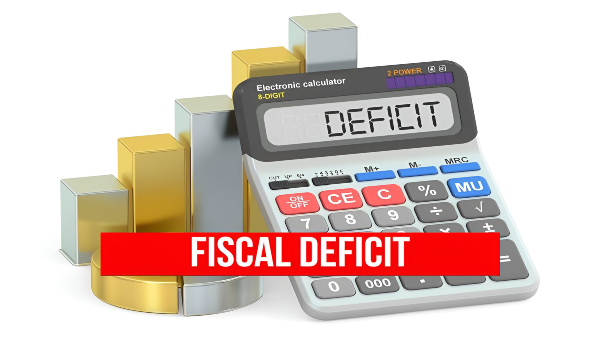In today’s rapidly growing economy, understanding fiscal deficit is crucial for making informed decisions about government spending and revenue collection. In the Indian context, fiscal deficit has been a topic of significant interest and concern among policymakers, investors, and citizens. We will go into the concept of fiscal deficit, its significance, and its impact on India’s economy.
What is Fiscal Deficit?
Fiscal deficit refers to the difference between a government’s total expenditure and its total revenue. It is a widely used indicator of a country’s financial position and a key tool for policymakers to gauge the economy’s performance. In simple terms, when a government spends more than it earns, it incurs a fiscal deficit. This can be achieved through borrowing, selling assets, or printing more money, which has significant implications for the economy.
Why is Fiscal Deficit a Concern in the Indian Context?

India’s fiscal deficit has been a pressing concern for many years, with the government struggling to maintain a balance between revenue and expenditure. A high fiscal deficit can lead to inflation, currency depreciation, and a decrease in investor confidence, ultimately affecting the economy’s growth. In India, a large portion of the government’s revenue is spent on subsidies, salaries, and debt repayment, leaving little room for capital expenditure on critical areas such as infrastructure development, healthcare, and education. A high fiscal deficit can also lead to dependence on foreign capital, making the economy vulnerable to global economic trends.
The Impact of Fiscal Deficit on India’s Economy
The impact of fiscal deficit on India’s economy is multifaceted. A high fiscal deficit can lead to a decline in investor confidence, resulting in a devaluation of the rupee and increased borrowing costs. This can make it difficult for Indian companies to access capital and increase production costs, ultimately affecting economic growth. Furthermore, a high fiscal deficit can lead to higher interest rates, further exacerbating the problem of inflation and making it difficult for individuals and businesses to access credit. On the other hand, a low fiscal deficit can lead to reduced borrowing costs, increased investor confidence, and a stronger rupee, ultimately promoting economic growth and stability.
Understanding fiscal deficit is essential for making informed decisions about government spending and revenue collection. India’s fiscal deficit has been a pressing concern for many years, with the government struggling to maintain a balance between revenue and expenditure. A high fiscal deficit can lead to inflation, currency depreciation, and a decrease in investor confidence, ultimately affecting the economy’s growth. However, by understanding the concept of fiscal deficit and its impact on the economy, policymakers can take steps to reduce the deficit and promote economic stability and growth.


